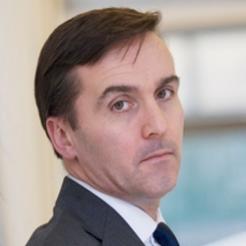Campbell Robb, the former director-general of the Office of the Third Sector, has attacked the way the coalition government is pushing through its reform agenda, claiming it is turning a deaf ear to concerns and dissenting voices.
Robb (pictured), who left the OTS a year ago to become chief executive of Shelter, told the NCVO’s campaigning conference yesterday that one of the biggest challenges facing campaigners today is the speed at which government policy is being made.
Common patterns are emerging in the government’s policy-making behaviour, he said: “The use of a few extreme examples to justify wider reform; generally a lack of concrete, robust evidence for decision-making; rushed and shortened consultation processes; sweeping push back on opponents as scaremongering.”
Robb said that if the government wants to demonstrate that it is happy to include the public in decision-making, it must listen to concerns and dissenting voices from experts, campaign groups and the public. “At this stage the government is not doing this.”
Localism agenda
Robb also warned that while the new localism agenda should be “a campaigner’s dream”, in reality it will pose many challenges, especially to those national campaigning organisations “set up to focus on a narrow London (and possibly Edinburgh, Cardiff and Belfast) elite of media, politicians and policy-makers and influencers”.
“May of them lack the capacity and knowledge to genuinely understand how to motivate and engage local activism and to bring about local change,” he said.
This warning was echoed by civil society minister Nick Hurd at yesterday’s meeting of the All-Party Parliamentary Group on Civil Society. In response to a question about the government’s stance on charity campaigning, Hurd said the sector’s campaigning role would become even more important once the new localism agenda properly kicked in.
“What that will tee up is many more arguments at local level about priorities and in that context it will be particularly important for the sector to give voice to people who would otherwise struggle to have a voice," he said.
“That is a challenge for the sector, because it is already quite good at having a voice at a national level, but it will need to develop its voice at the local level.”
Robb went on to say that if localism works, “we can hope to develop a network of more active campaigners who are motivated by a personal desire to change things and can help all of us achieve our aims”.
He concluded: “We, like the government though, must be very aware that it may be public discontent rather than public involvement which makes this year’s headlines. Thereafter, the likelihood of people being motivated to get involved in local decision-making may rest on the reaction they feel they have had from government.”









